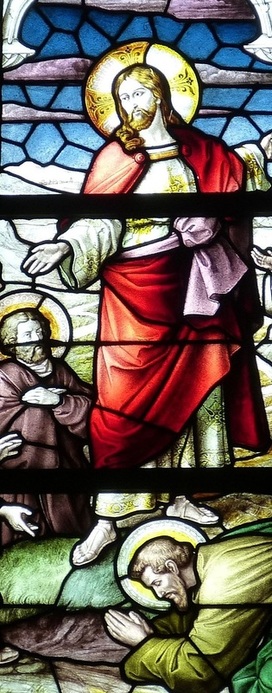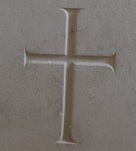
Today, we’ll conclude the series by looking at the role angels played in the most significant event in history. We’ve already seen that angels are messengers from God. They bring news and instruction to His people. This was never more true than on the morning of the resurrection. Here we find two followers of Jesus going to the tomb where His body had been laid three days earlier.
Suddenly there was a violent earthquake, because an angel of the Lord descended from heaven and approached the tomb. He rolled back the stone and was sitting on it. His appearance was like lightning, and his robe was as white as snow. The guards were so shaken from fear of him that they became like dead men. But the angel told the women, "Don't be afraid, because I know you are looking for Jesus who was crucified. He is not here! For He has been resurrected, just as He said. Come and see the place where He lay. (Matthew 28:2-6)
What a privilege for this angel to be the first to proclaim, “He is not here! He is risen from the dead.” No greater news has ever been proclaimed by a herald. It is important to note that when the stone was rolled away Jesus was already gone. He overcame death. The angel didn’t come to let Jesus out, but to let them in. In John’s account, we see another message from the angels to Mary Magdalene.
She saw two angels in white sitting there, one at the head and one at the feet, where Jesus' body had been lying. They said to her, "Woman, why are you crying?" (John 20:12-13)
This is a great picture, and one that would have been very familiar to the Jewish people. Two angels sat where Jesus had been, one at the foot and one at the head. When God instructed the Israelites to construct the Ark of the Covenant, He had them place an angel at each end of the cover with their wings spread over what was called the mercy seat. The presence of God would then appear in a cloud above the mercy seat, between the angels. Surely when God gave this instruction, He looked out across time to see His Son lying between the wings of these angels, the culmination of His appearance to and provision for humanity. When Mary arrived only the angels remained. Christ had overcome death!
The battle which we now wage on His behalf isn’t waged to bring about victory. The victory is already won. Rather, we fight to make Him known, to increase His glory, to remove blindness, and to see His kingdom evidenced on earth. In His name, even the demons will submit. (Luke 10:17)
Thank you for joining me on this blog journey through the unseen realm.
Till next time!




 RSS Feed
RSS Feed